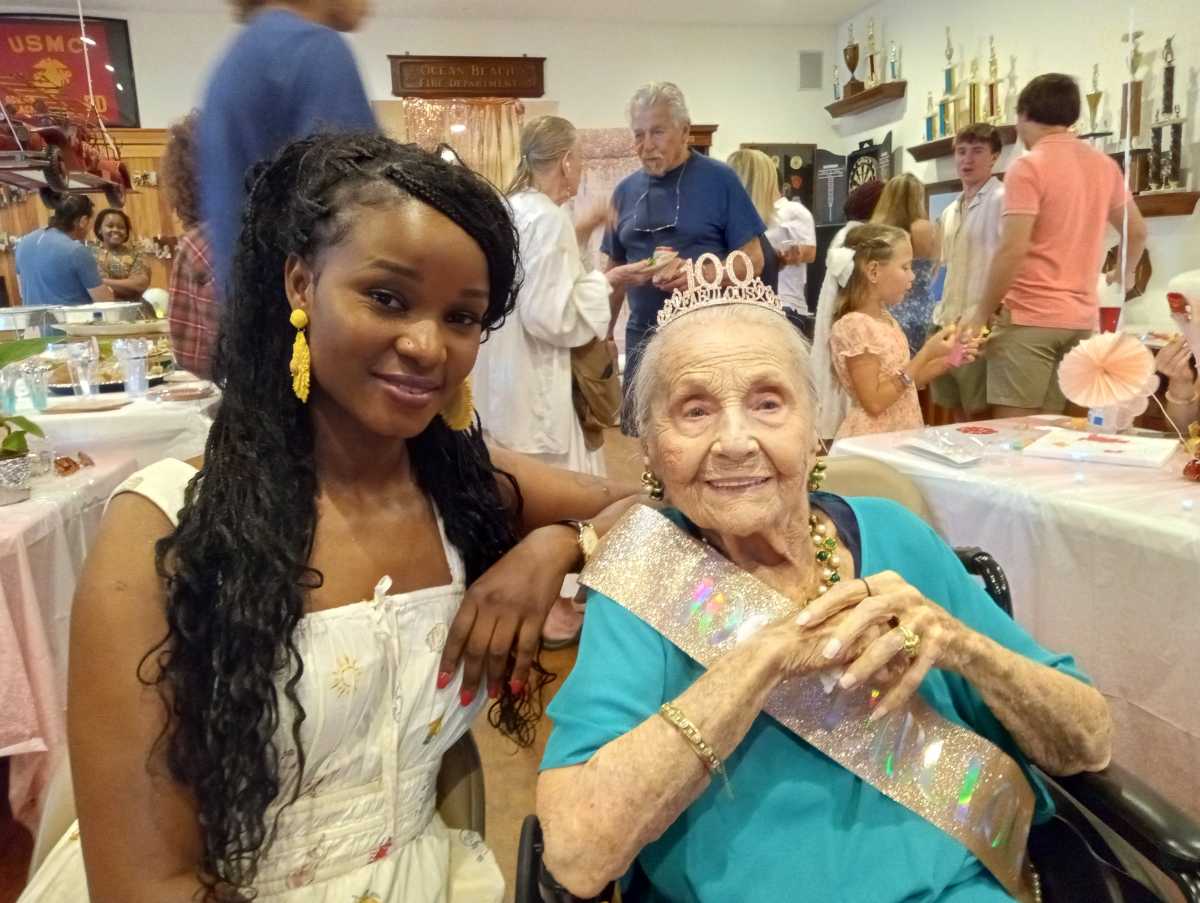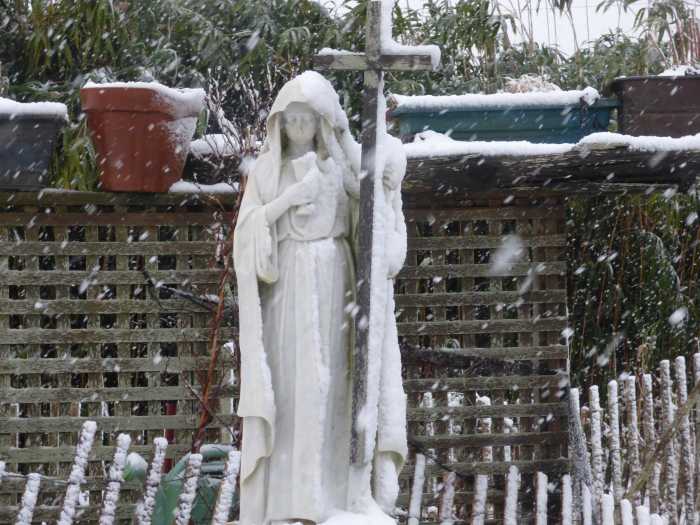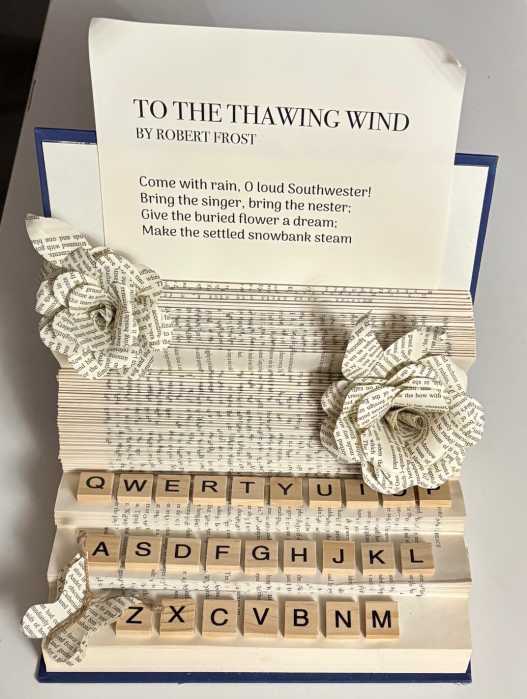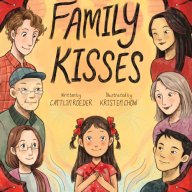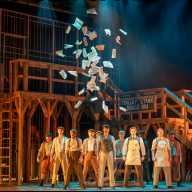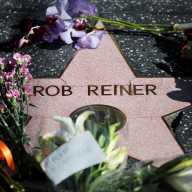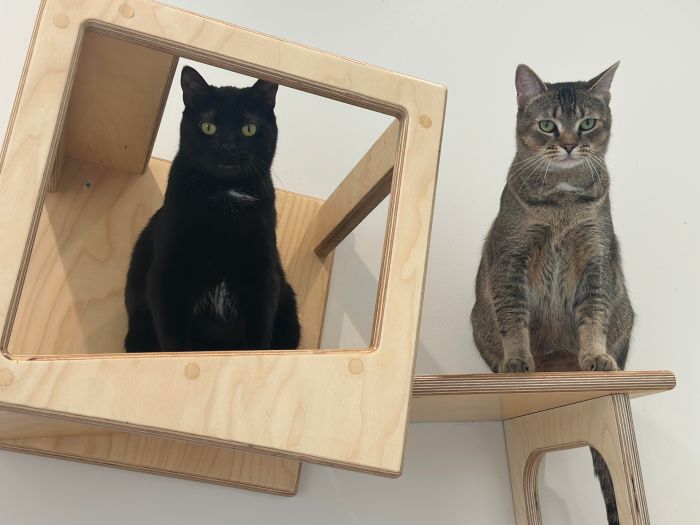In July, I had the honor of being invited to Edith Mendelsohn’s hundredth birthday celebration. While interviewing our Fire Island centenarian population is always important, this was a rare opportunity for our Behind the Dunes section. Mendelsohn built a livelihood around the Fire Island real estate market and has a lifetime of knowledge to share.
Fire Island News (FIN): When did you become a licensed real estate agent on Fire Island?
Edith Mendelsohn (EM): I bought this house in 1969. I was already working for Kay Birmingham at the time. I was a salesperson. It was my first actual time working in real estate. I was just in my forties. Later, I started working for Debbie Alter in Seaview [the former Fire Island Summer Space.] I was selling up and down the island, but not past Ocean Bay Park. I worked west of Ocean Beach too – the Summer Club and Robbins Rest – sometimes even Fair Harbor, but I had less success there.
FIN: Did you do more rentals or sales?
EM: Most of the time, I was involved with sales, but some rentals. Whatever came my way.
FIN: After a while, you became an investor. You had homes of your own that you purchased, rented, and sold when they gained value.
EM: Yes. Altogether, I had six or seven of the houses. The first house I bought was $9,000.
FIN: In your opinion, what has changed about Fire Island real estate?
EM: Well, of course, the price is tremendously different from what anybody thought of as ever going to be. Million-dollar sales were not thoughts people had in their heads when I first started. Prices certainly have changed. Now, a million dollars is almost a given.
FIN: How about other factors? Rental patterns. People used to stay the entire summer, and now many come only for about a week. What are your thoughts on that?
EM: Well, that was never a consideration while I was working rentals. That was always a controversial hill. Many would ask whether it was worth it.
FIN: How about groupers? They were a big thing back in the seventies.
EM: I was a grouper. One of the first houses I had was the McMorrow house out on the ocean. We shared with 13 people – other married couples, our children, and our mother’s helpers.
FIN: It must have been a beehive.
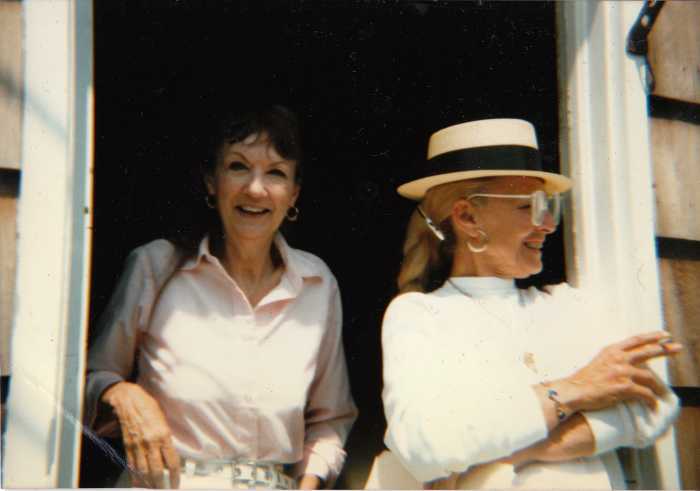
EM: Oh, it was.
FIN: The McMorrow house was eventually lost to the sea, correct?
EM: Yes, and it had just been renovated. Too bad. I eventually sold the property where it once stood. I sold the oceanfront large lot for $20,000. Today, that lot would start at a million.
FIN: Then later, you got into the hospitality business. Weren’t you a partner of the High Dune Inn?
EM: Yes, I did that many years later, which always amazes me because I also was a summer renter. I don’t know how I had the energy to do it all.
FIN: You built your own income and grew your own wealth separate and apart from what your husband did at a time when it was not always possible for women to do so.
EM: Thank God our incomes were not entirely separate. His earnings were more stable than mine. What did I know about real estate?
FIN: Well, apparently, you knew enough to acquire six or seven houses eventually. That became your retirement.
EM: I did a lot. When I think about the work, I did a lot. We didn’t have golf carts, unlike many real estate agents today.
FIN: Did you have to walk it or bicycle it?
EM: At the very beginning, I only walked. It was hard because you had to get your customers interested enough to walk too. Suppose I had to show clients a house in Ocean Bay Park. That meant dragging a lot of people who weren’t used to walking. It was a lot of physical work, and we weren’t always successful. When I think of keeping a conversation going with perfect strangers, it’s pretty hard to start out not knowing a thing about them and having to hang onto them before they get away. That’s what was so exhausting.
FIN: What do you think is the same about real estate today? What is the constant?
EM: They want to be here. In those days, everybody was looking for a real place to get away, and Fire Island was unusual and affordable. The pressure of living and working in the city, and the sense of relief when you get on that ferry. Most of us just felt we were one of the lucky ones to have discovered this place. Things have changed, but the investment is still actually very sensible.
FIN: You still think Fire Island is an investment that will hold?
EM: There’s no place else like it.
FIN: I’ve got a question, and it’s out of left field. About 15 years ago, I read Wolcott Gibbs’ book Season in the Sun. In one of his short stories, he mentions a character named Mrs. Mendelsohn, and she has a son named David. Is that you and David?
EM: Yes. People mixed back then, and it wasn’t unusual. There wasn’t much separation between the celebrities and the general population. Now, Marilyn Monroe, part of the miracle of being here, was that she could walk on the beach without being molested. People are still pretty sophisticated, without imposing themselves on others.
FIN: Is there anything you want to say that my questions haven’t touched on?
EM: Robert Moses made a bad call. He could have done a lot if he hadn’t been fighting for that highway. He missed a real opportunity.
FIN: You think so?
EM: Absolutely.



